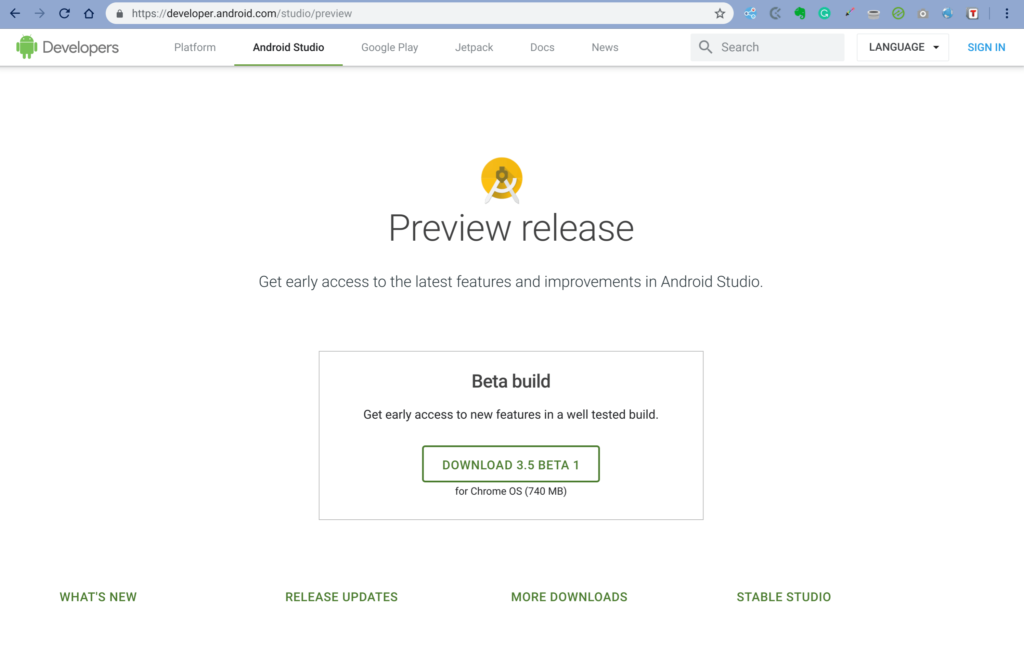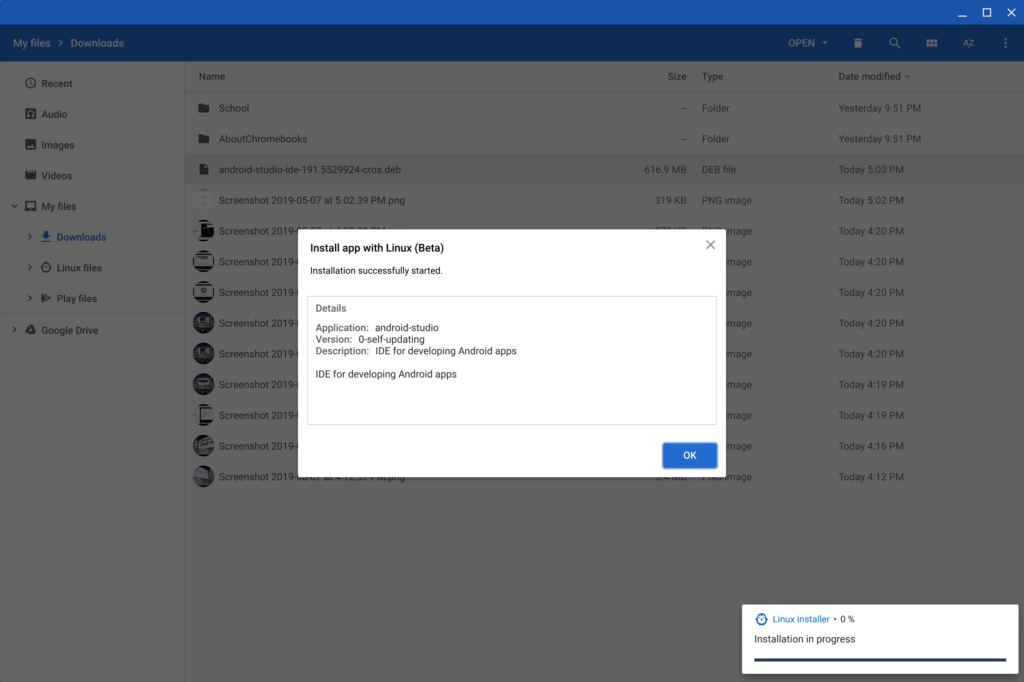So the main Google I/O 2019 keynote has come and gone with barely a mention of Chrome OS or Chromebooks. After it was over, I tuned in to the Developer keynote to see if there would be any news there.
As expected, there was no Chromebook hardware news. But even on the developer side, there wasn’t much either. Well, at least not much that hadn’t been previously announced.
If you recall last year’s I/O event, Project Crostini – now known as the Linux (Beta) feature for Chrome OS – was shown off. And Google also said that Android Studio would be fully supported on Chromebooks. To that end, the latest beta release of the developer toolset has a simpler installation.

Clicking the download link pulls down an Android Studio .deb package specifically for Chrome OS. From there, it’s just a quick click or two in the Files app to install the .deb package.

That’s the good news. The bad news – if like me, you were hoping for Android Virtual Device (or emulation) support – is that it isn’t there. However, with the new USB device support and Android debugging features coming to the Stable Channel of Chrome OS, you should be able to run an Android app under development via USB from a Chromebook.
And speaking of Chromebooks for Android development, Google has an official list of recommended hardware requirements:
- 8 GB RAM minimum
- 4 GB of available disk space minimum
- 1280 x 800 minimum screen resolution
- Intel i5 or higher (U series or higher)
This is Google’s list of recommended devices:
- Lenovo Yoga C630 Chromebook
- Acer Chromebook Spin 13
- HP Chromebook x360
- HP Chromebox G2
- Acer Chromebox CXI3
I noticed that the Pixel Slate I use for coding wasn’t on the list which caused me to do a double-take but it has a Y-series processor, not a U-series. Regardless, Android Studio does run on my Core i5 model, albeit with a bit of lag with the preview release.
Note that the Pixelbook also uses a Y-series CPU, which is why it too doesn’t appear on the list of recommended devices. That seems strange considering it’s still the “flagship” Google-branded Chromebook.
It’s possible that more Chrome OS news will arrive over the coming days at specific I/O developer sessions, so stay tuned. Until then, don’t feel like you’ve missed out on anything Chromebook related at Google’s annual developer event.

